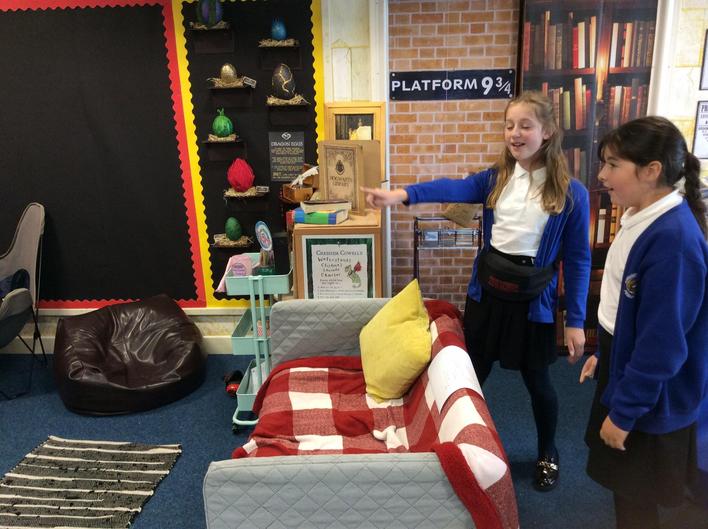Speaking and Listening
 |
 |
Rationale:
Our Vision:
“At Burradon, we aim to inspire our children in the art of speaking and listening so that they are confident and articulate when communicating with those around them.”
Intent:
At Burradon, we believe that Speaking and Listening is a fundamental life skill. English develops children’s ability to listen and speak, for a wide range of purposes. Children are enabled to express themselves creatively as they become immersed in the imaginative world of stories, poetry and drama. They are able to express their opinions on a range of real-life issues which are important to them across the curriculum.
Our Key Principles:
- To enable children to order their thoughts and express them clearly
- To develop skills of oracy, giving the children confidence and understanding, equipping them for work and leisure
- To express and justify their feelings and opinions with increasing clarity and effectiveness and respect the opinions of others
- To communicate with ease in varied circumstances for different audiences and purposes
- To increase the children’s command of Standard English
- To encourage children to listen with concentration, in order to identify the main points of what they have heard
- To encourage children to ask questions in order to extend their knowledge and understanding
- To allow the children to prepare their ideas before they write
Implementation:
Throughout EYFS, Key Stage 1 (KS1) and Key Stage 2 (KS2), children need to be given opportunities to express their ideas in speech, to describe their own ideas, to make plans and to take part in discussions. In parallel with this, they have to learn to listen to others and to absorb what they hear. They have to learn the conventions of conversation, taking turns, allowing others to speak, responding appropriately to what has been said and valuing the opinions of others. All members of staff at Burradon Community Primary School have the responsibility to ensure that all children are empowered to speak and express their ideas.
Children should be encouraged to speak in a range of contexts and, as they grow older, adapt their style of speech appropriately.
Speaking and listening permeates all areas of the curriculum. The children learn from early on, to plan their work, listen to the plans of others, recall and assess their work and to listen while others recall. It is only when speaking and listening skills have been developed that children can effectively work co-operatively and collaboratively.
Informal Activities to Promote Speaking and Listening.
- role play areas (EYFS and KS1)
- shared play (work) areas
- reading and maths games
- shared reading of information texts, atlases, etc.
- interactive displays
- child-initiated play in EYFS
Structured Activities to Promote Speaking and Listening
- focused activities in EYFS
- drama activities
- circle time
- show and share/tell time
- oral dictations (spellings)
- shared and guided reading
- telling or reading a story to/with a class
- class debates
- speeches and persuasive arguments/discussions
- play scripts
- school productions and assemblies
- Talk for Writing activities
Many of these activities will be delivered as part of their English lesson. However other opportunities are given throughout the day to encourage and facilitate speaking and listening.
Year 5
Year 5
Year 5 took a few verses of 'The Highwayman' by Alfred Noyes to perform.
